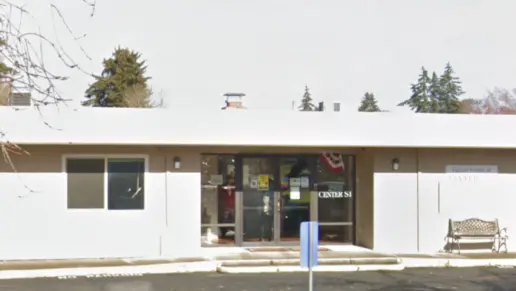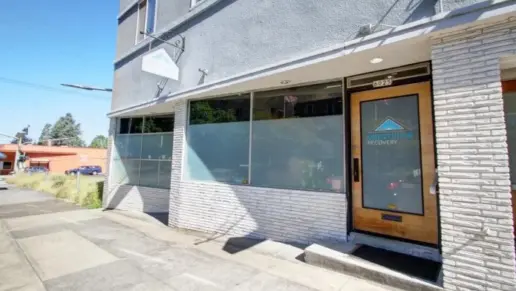Luke Dorf is one of the best centers in the city to receive mental health services, the wonderful staff are always at the service of the patients in a very attentive way, in this place if they take care of the patients, they are great.
About New Narrative—Mill Park Center
You’ll find New Narrative’s Mill Park Center located in Portland in Oregon. This facility offers outpatient mental health services in a community clinic setting, with specialized support if you’re experiencing substance use concerns. It’s a positive place where you can access a mix of services to support your goals toward healing. We like that they provide both clinical care and practical support simultaneously.
Outpatient Mental Health Care in the Mill Park Neighborhood
You can meet privately with a therapist for individual one on one psychotherapy or you can participate in group based sessions if you want to connect with others. These outpatient services are flexible enough to fit around your personal schedule. We like that they are designed to help you stay involved in the community also while still getting robust support.
Support for Co-Occurring Mental Health and Substance Use
If you’re experiencing substance use dependency with mental health concerns, this clinic can assist you with personalized care that addresses both conditions at the same time. This includes counseling, medication management, and recovery planning all configured to your needs. This is a setting in which you can work on every area of your wellness without having to go to different places and programs.
Extensive Programs including Housing Support in Portland
Alongside therapy and medication, their case managers can help you find housing and get connected with crucial local resources. Their staff will work alongside you to develop plans and strategies while also offering your peer run services and suicide prevention workshops. If you like learning with others, you’ll find that kind of connection there because it’s built into how they operate.
Insurance Options
They accept Medicaid, Medicare, and state financed plans. They work with state mental health agency funds, county and government funds, and juvenile justice funds. They also take community service block grants.
Facility Overview
Rehab Score
Gallery
Accepted Insurance
Other Forms of Payment
Medicaid is a state based program that helps lower-income individuals and families pay for healthcare. Medicaid covers addiction treatment so those enrolled can use their coverage to pay for rehab. When a program accepts Medicaid the client often pays very little or nothing out of their own pocket.
Addiction Treatments
Levels of Care
 Outpatient
Outpatient
Treatments
Mental health rehabs focus on helping individuals recover from mental illnesses like bipolar disorder, clinical depression, anxiety disorders, schizophrenia, and more. Mental health professionals at these facilities are trained to understand and treat mental health issues, both in individual and group settings.
Programs

Adult Program

Young Adult Program
Clinical Services
Cognitive Behavioral Therapy (CBT) is a therapy modality that focuses on the relationship between one's thoughts, feelings, and behaviors. It is used to establish and allow for healthy responses to thoughts and feelings (instead of unhealthy responses, like using drugs or alcohol). CBT has been proven effective for recovering addicts of all kinds, and is used to strengthen a patient's own self-awareness and ability to self-regulate. CBT allows individuals to monitor their own emotional state, become more adept at communicating with others, and manage stress without needing to engage in substance abuse.
Experiential therapy is a form of therapy in which clients are encouraged to surface and work through subconscious issues by engaging in real-time experiences. Experiential therapy departs from traditional talk therapy by involving the body, and having clients engage in activities, movements, and physical and emotional expression. This can involve role-play or using props (which can include other people). Experiential therapy can help people process trauma, memories, and emotion quickly, deeply, and in a lasting fashion, leading to substantial and impactful healing.
Group therapy is any therapeutic work that happens in a group (not one-on-one). There are a number of different group therapy modalities, including support groups, experiential therapy, psycho-education, and more. Group therapy involves treatment as well as processing interaction between group members.
In individual therapy, a patient meets one-on-one with a trained psychologist or counselor. Therapy is a pivotal part of effective substance abuse treatment, as it often covers root causes of addiction, including challenges faced by the patient in their social, family, and work/school life.
Nutrition therapy, aka medical nutrition therapy (MNT), is a way of treating physical, emotional, and medical conditions through diet. Specific dietary plans are designed by professional nutritionists or registered dietitians, and patients follow them in order to positively affect their physical and mental health.
Staff
Julie Ibrahim
CEO
William Allen
VP of Operations
Beth Cooke
VP of Development & Advocacy
Allie Sheets, LPC
VP of Clinical Services
Lindsay Downen, LPC
VP of Quality & Impact
Janelle Kent
VP of Finance
Daniel Nicoli, DO
Medical Director
Iris Sexton
VP of Residential Services
Contact Information
1952 Se 122nd Avenue
Portland, OR 97233







